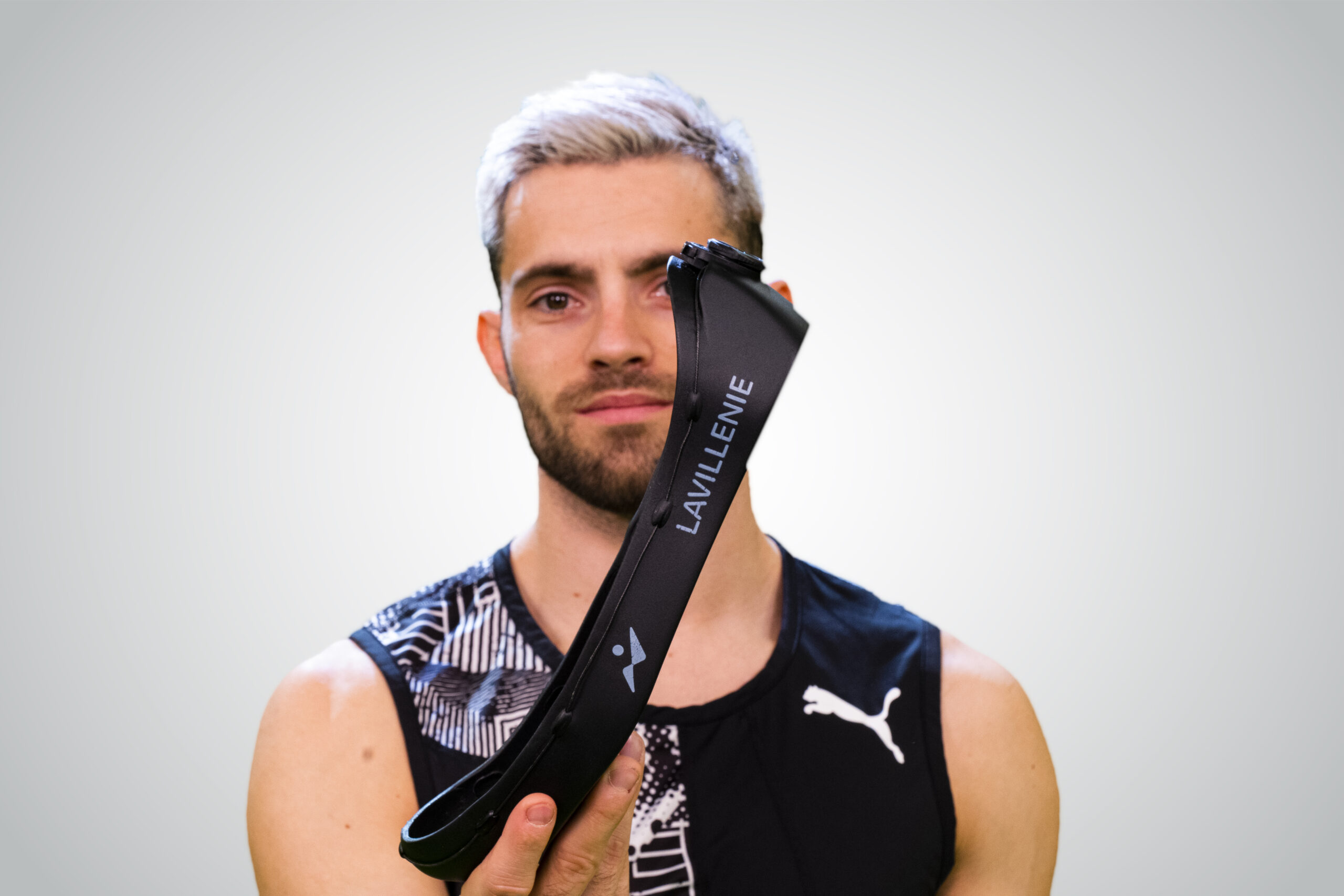OUR AMBASSADORS AND THE KEY ONE
AMBASSADORS | KEYENA
CONTEXT
Renowned French athletes Laura Valette, Yanis David, Pascal Martinot-Lagarde and Valentin Lavillenie are Keyena Ambassadors. Equipped with KEY ONE since the launch of this product, the ambassadors first tested the product. Today, they use it in their daily training as well as in competition when spikes are required. With the team we decided to interview three athletes about their use of the KEY ONE and share with you their daily life with the protective insoles. The interview then went beyond the product aspect and led to a discussion of very interesting themes on the sports aspect such as rituals, the unexpected, stress, performance, mindset … This article is intended to help you to approach your trainings and your competitions in the best way thanks to the equipment (KEY ONE) as well as the organization and the approach of the practice of your discipline. We let you discover all that!
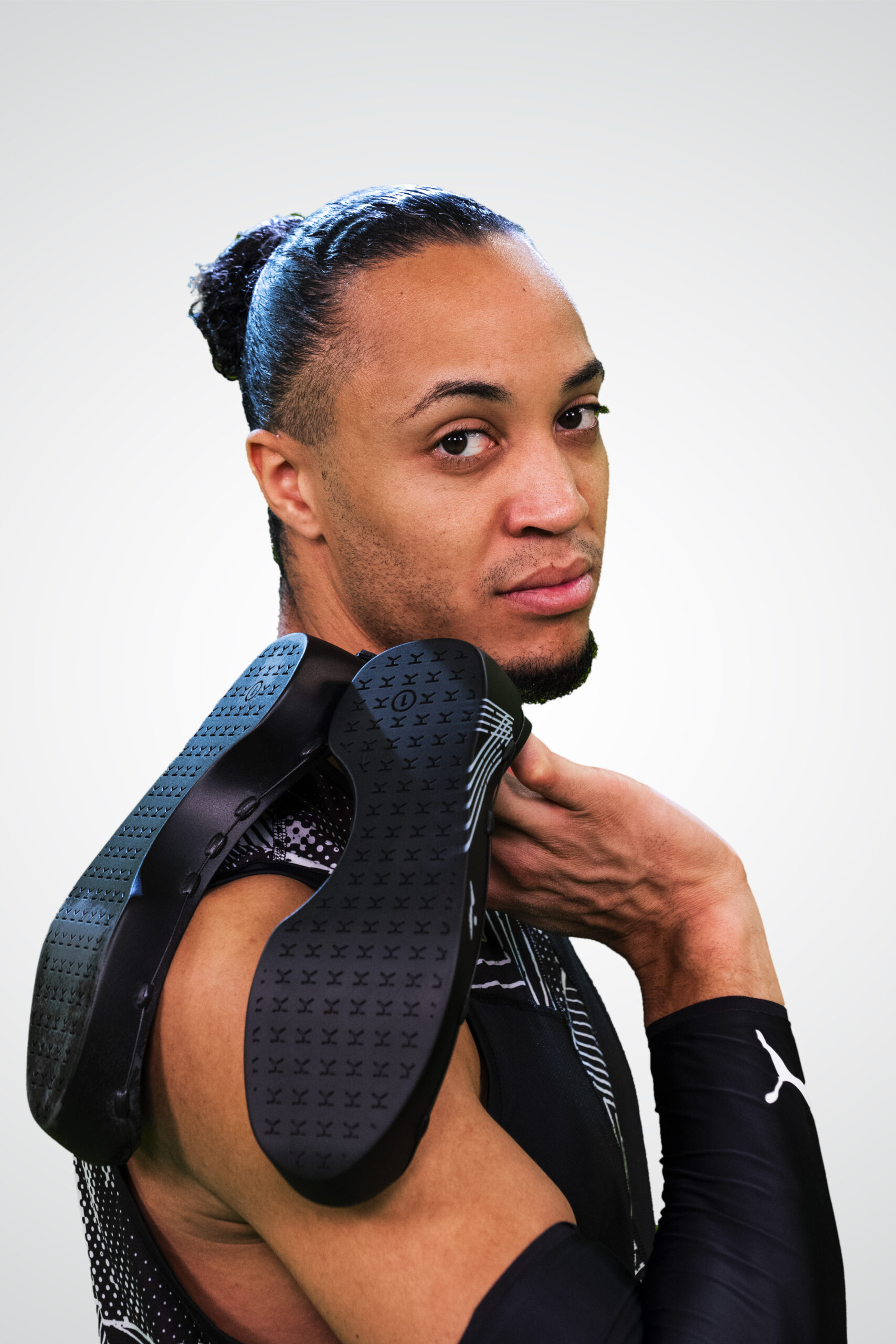
“
I have been using the KEY ONE since I received them, they have never left my spikes. I use them in training as well as in competition. In fact, in competition, they do not go unnoticed. The KEY ONE are very useful in my routine, especially for not damaging anything in my bag, for more practicality, especially when going to the bathroom or to the call room in competition. The comfort contribution is also very important, walking on the heels is fine for 2 minutes… The functions of the KEY ONE that seem to me the most important are the protection of the things in the bag during the transport of the spikes as well as its practicality especially in the call room. It was easy to include them in my routine because from day one, the KEY ONE are in close contact with my spikes, I always have them with me, and they are always nearby in case of need.”
“
“
I have been using the KEY ONE since I received them for training and competitions. I use them for storage, they are always nested on my spikes, for practicality and to limit the wear of my spikes. But also for the comfort of not having the spikes on my back when I carry my bag and not having to remove the spikes each time I go to the bathroom, and as I go regularly… What I like most about this product is its practicality, it makes my life so much easier, it avoids having to think about all the usual “logistics”: asking myself the question: do I go to the bathroom or not, because of the risk of being late if I take my spikes off so I don’t fall off?
It was pretty easy to include them in my routine because I put them directly in the bag on my tips and since then they don’t move, I use them as soon as I use my tips.
“
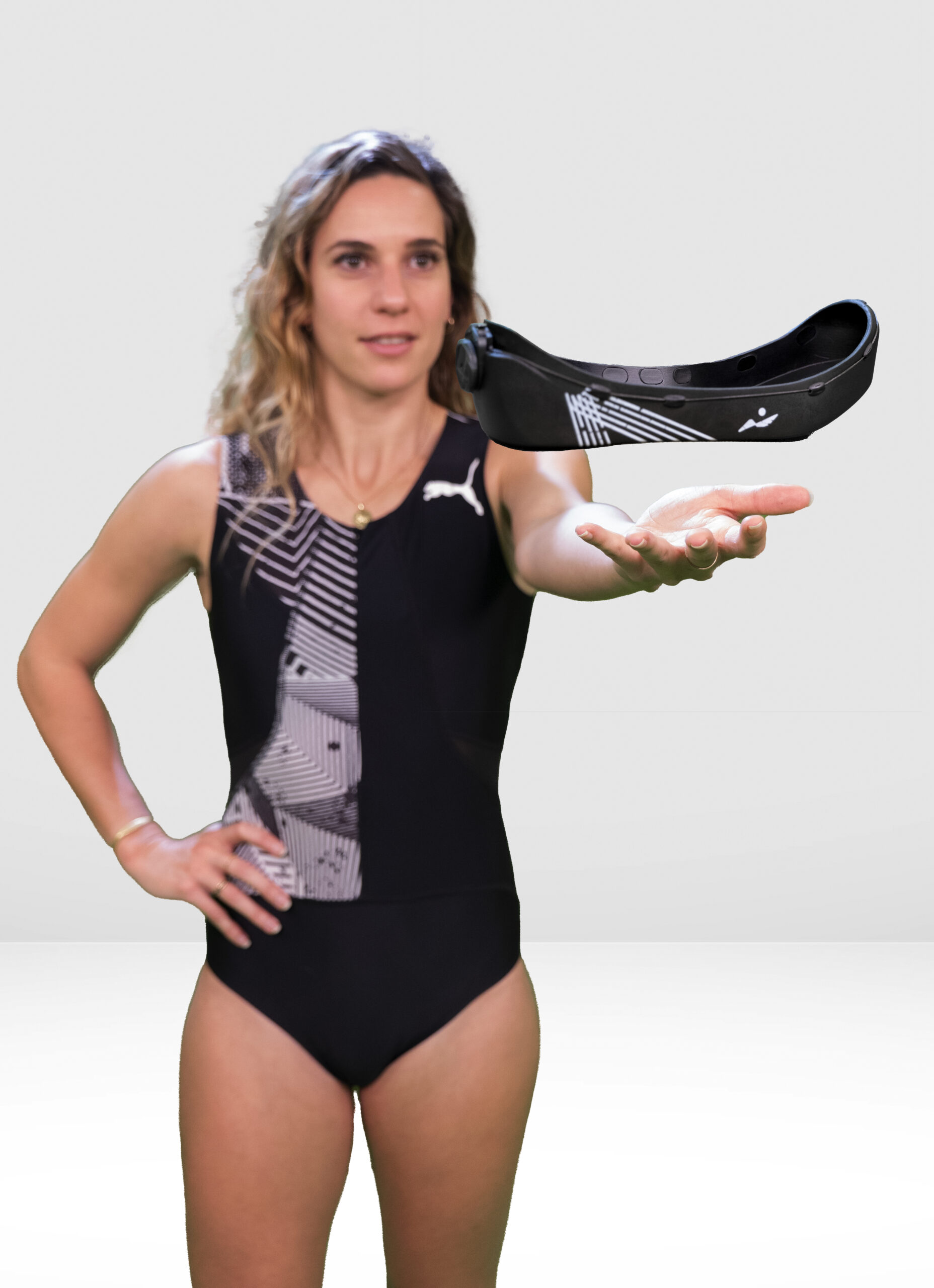
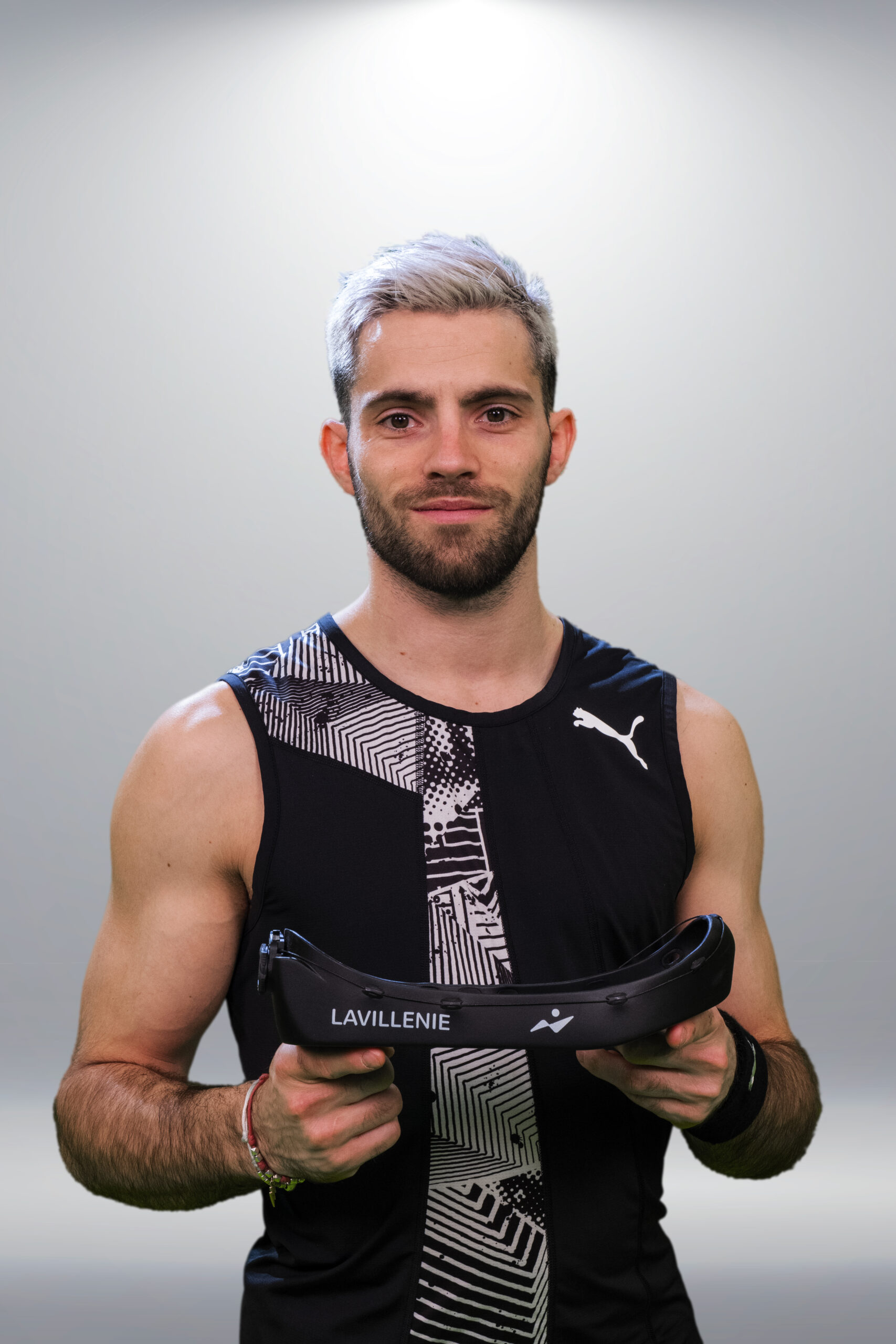
“
I mainly use the KEY ONE in competitions for transportation and storage, that’s really the main use. After that, I also sometimes put them on my spikes to avoid surfaces like concrete when I have to move on the plateaus during the competition. On the other hand, today’s commercialized nails offer less and less the possibility to remove/change the nails, so the KEY ONE bring a real advantage by protecting the nails. And yeah, when I go to a competition with only a backpack, when I fly, I’m not afraid to pierce anything, to make a hole in my clothes. When I’m training, I don’t wear them as much, because everything at home is made of tartan or almost. I put them on quickly to go to the bathroom to walk on the tile floor, it avoids wasting time taking off and putting back on my spikes. And at least I don’t have to think about whether I’m going or not.
“
PERFORMANCE SECRETS, CHAMPIONS MINDSET , MANAGEMENT OF THE UNEXPECTED …
So many subjects discussed with these three Olympic athletes. Different points of view, thoughts that come together, we reveal everything to you. Besides, with the winter competitions starting in a few weeks, we thought it would be a good idea to share with you the points of view of our athletes, their preparations and their advice so that you can be as well prepared as possible to reach your goals and achieve the performances you have set for yourself!
THE UNEXPECTED ACCORDING TO THE ATHLETES
The unexpected is part of life for professional athletes. In a competition, you may find yourself facing complicated weather conditions with too much wind, or you may notice a competitor you don’t expect to see going faster. But in the face of this, you must succeed in focusing on yourself and look for the positive in each situation. In addition, you have to force yourself to break the routines to get used to leaving your comfort zone. This part is not easy but it can be learned and it is part of the job.
Laura Valette
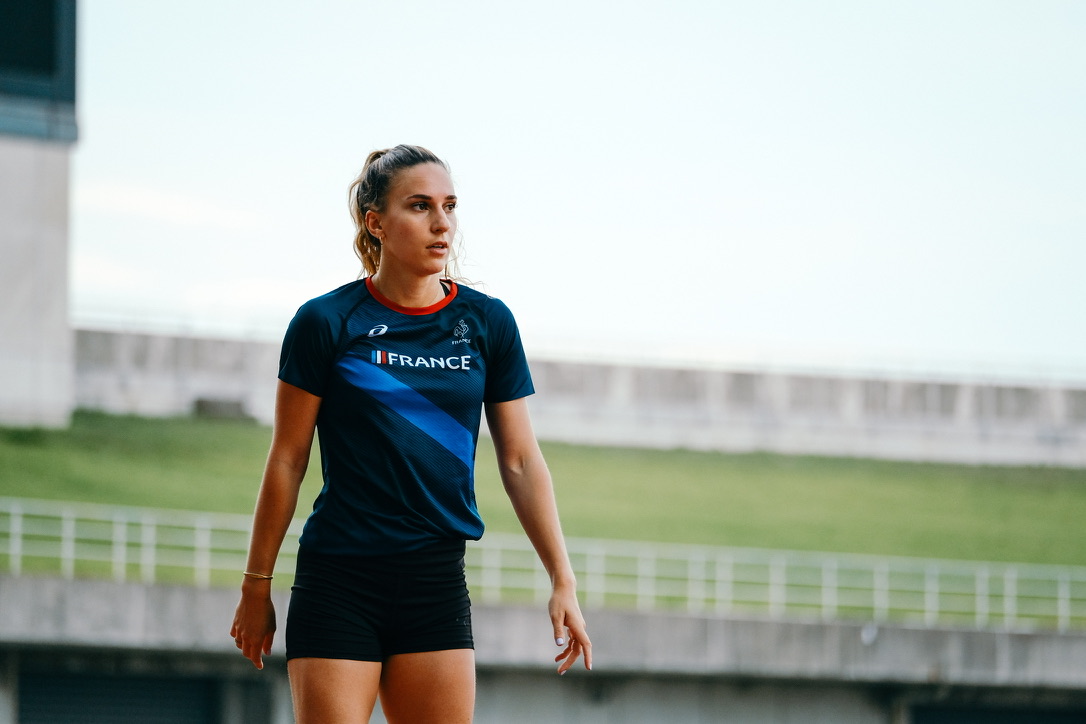
When something unexpected happens, you go off the rails, you go off what you had imagined when you approached the competition in your head. It is different from what you had imagined, from what you had planned. However, at no time should you imagine the possibility that it could go wrong. You must not weaken in your head. If there is an unforeseen event, you have to tell yourself that it’s okay, digest it and readjust: a backache, missing the bus, etc.
Pascal Martinot-Lagarde
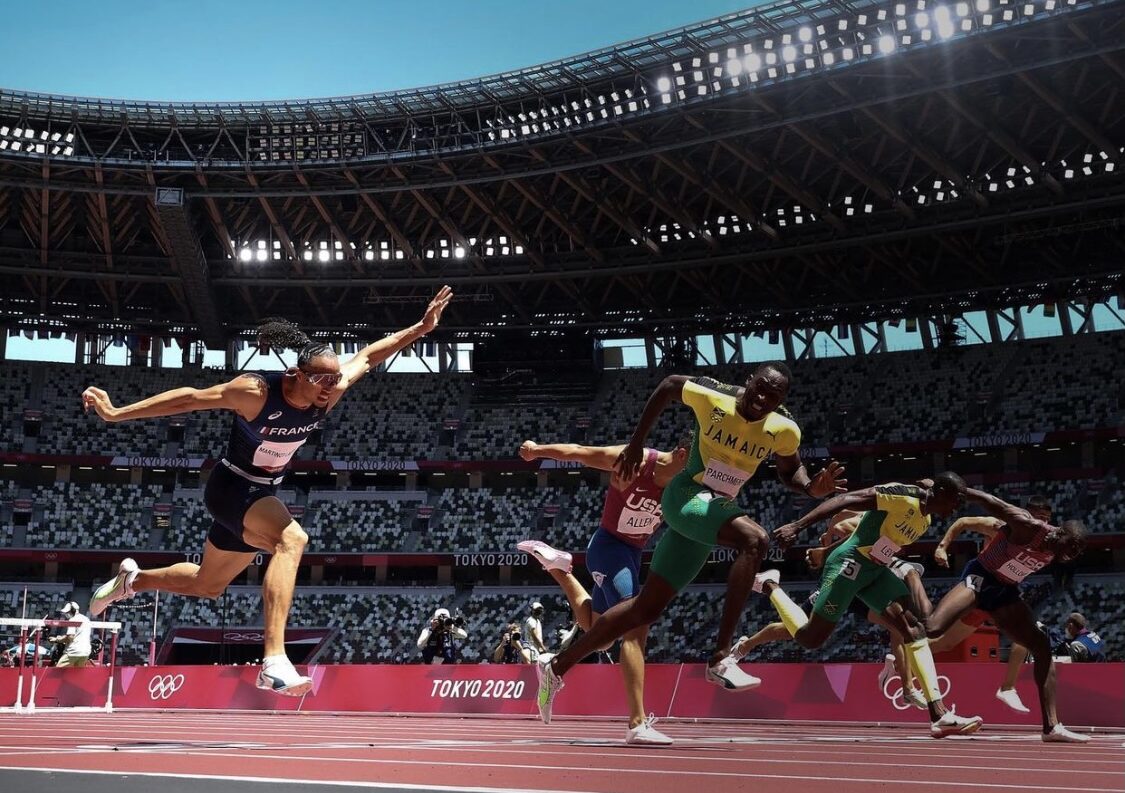
RITUALS ACCORDING TO ATHLETES
I have quite a few tics: I put my hair back, I slap my thighs, I yell “it’s now!” and right before the race I put myself in my “tunnel”. I really need to focus on the “right moment”, to be focused on the present moment so I don’t overflow and waste energy before.
Laura Valette
Personally I am against rituals. If you ritualize your approach to competition on the days of competition when you can’t fit into your ritual, you’re in trouble, you lose your bearings, you’re lost. For my part, I have a general anticipation of schedules but no ritualization to the millimeter.
Pascal Martinot-Lagarde
My ritual is to prepare my stuff, to check if I have all the equipment and if it is in good condition, especially for the poles. Apart from the equipment, I put myself in my bubble by listening to music and by surrounding myself with my loved ones who bring me some positives before the competition.
Valentin Lavillenie
STRESS ACCORDING TO ATHLETES
Last season I felt a lot of stress, the fear of succeeding or not. I call it a silly fear. There were two times last year when I was strong, I knew it. I was prepared, I knew I was going to do something. But on the other hand I was scared, I was like “are you really going to do this?!” I started to get scared but I said to myself “stop”, I have all the cards in my hand, I even have four aces and I’m going all-in.
Valentin Lavillenie
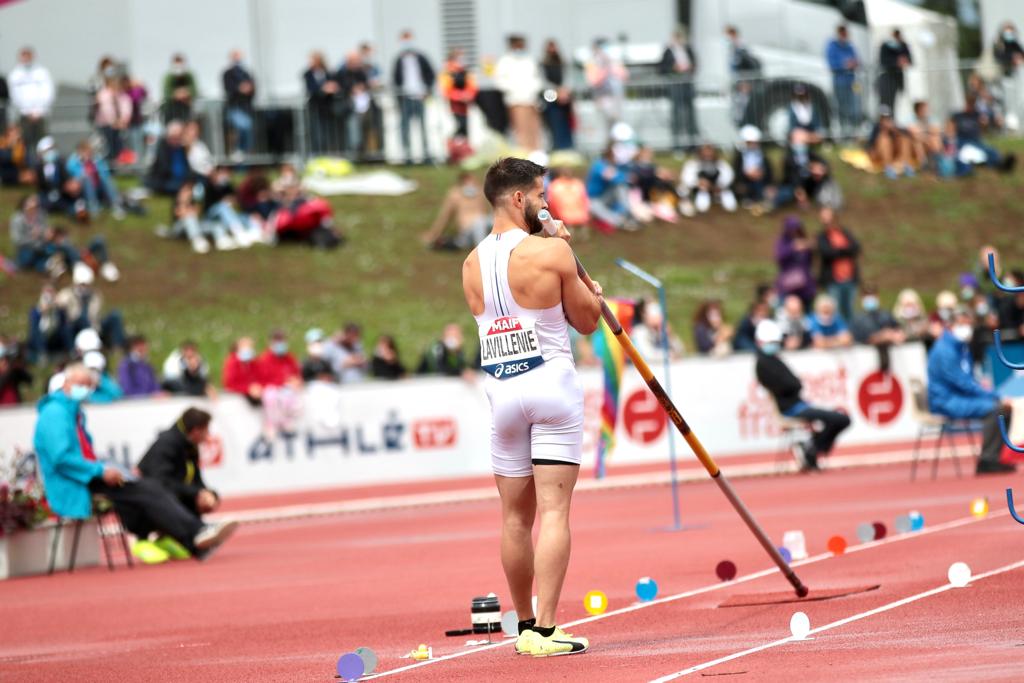
Stress management varies greatly from person to person. Some will want to remove all the stress to focus only on the technical points. On my side, I put into practice what I have prepared with my mental coach: I increase this stress to perform better. When you manage your stress well, it can be very positive. We see it especially during the big finals, the athletes perform well and achieve good times. It means that when people are well stressed and that they manage it correctly, this stress allows them to perform well.
Laura Valette
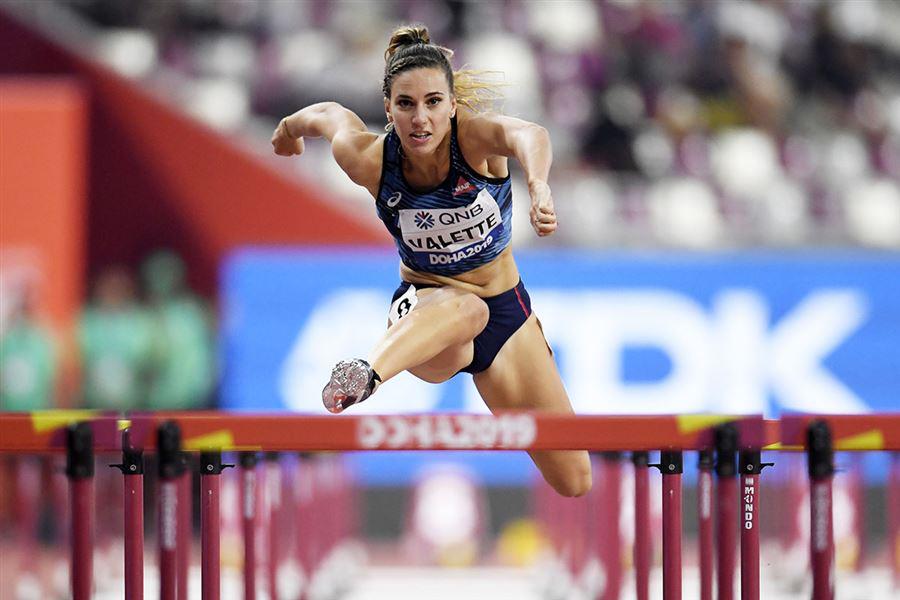
PERFORMANCE SECRETS ACCORDING TO ATHLETES
Before a competition, it is important to refocus on oneself, to put oneself in one’s own bubble, in one’s own world and above all to cut oneself off from outside life and one’s daily worries in order to optimize one’s concentration on what matters in the present moment: performance, one’s own body, one’s own head.
Valentin Lavillenie
The mind, is a key element of performance without it it is difficult to perform. The training and the rigor are also important factors to reach a performance. In high level, even if you have talent and a lot of training, if you don’t have this rigor, it is not forgivable.
Laura Valette
The practice of self-conditioning in big competitions, mainly during moments of great pressure, can bring a lot. This practice consists of talking to oneself, repeating positive things over and over again, conditioning oneself to be the best, to aim for the moon.
Pascal Martinot-Lagarde
CHAMPIONS MINDSET ACCORDING TO ATHLETES
Look at the champions. They all have an atypical side, their own ingredient that makes them nuggets in their field like madness or arrogance. You have to have that special grin of madness to get the moon, someone normal will do normal results. In pole vault or in long jump, the athletes go for it and don’t ask themselves any questions while we can wonder if the human body is capable of doing it… To be a champion is to have a crazy grin to see further than what people usually see.
Pascal Martinot-Lagarde
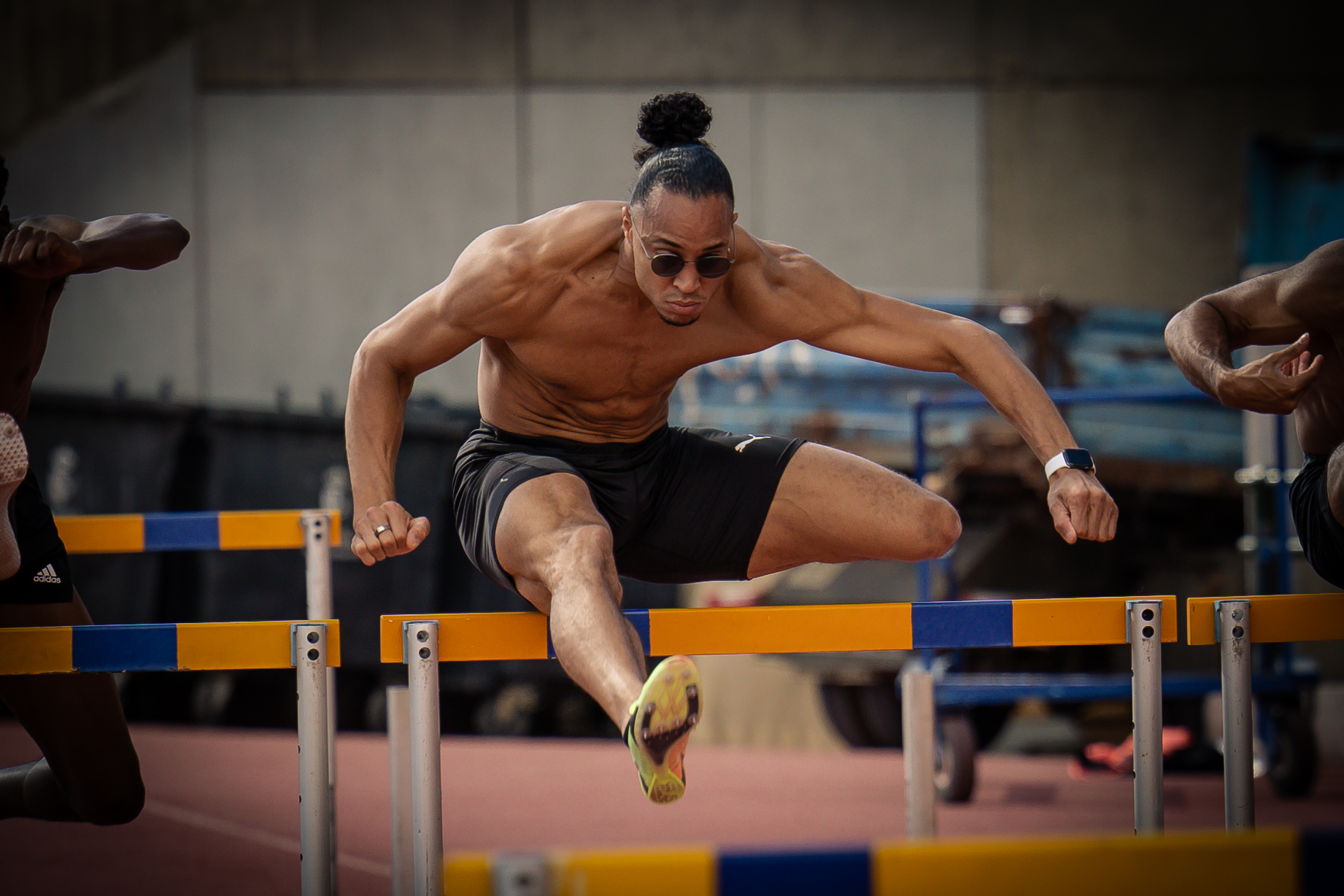
Everything we do will cause what will happen afterwards: what brings us to this or that situation. In sports, if you don’t prepare well, you can’t expect to do miracles. On the other hand, if you prepare well, you know that you have several cards in your hand to fight.
Chance does not exist, it has no place in sport or in life in general.
Valentin Lavillenie
